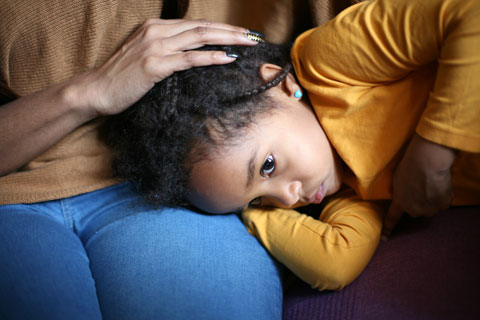When we think of children’s health, we usually think of their physical well-being. “Are they active and fit? Do they get sick often?” Mental health is just as important as physical health. “Mental health” includes how we feel about ourselves and other people, and how we cope with life. Mental health in young children is related to their social and emotional development. Caregivers, teachers, and family members all have roles to play in fostering young children’s mental health.
For good mental health, young children need—
- safe places to live and play
- the right amount of healthy food to eat
- love, care, and comfort from caregivers and family members
- plenty of time for active play with other children
- time to relax and follow their own interests
- caregivers and teachers who are supportive and encouraging
- experiences that help them feel confident and capable
- time to express and understand their own emotions
- guidance and discipline that are firm but not harsh
A child’s mental health is probably good if he or she usually—
- seems to feel safe and comfortable rather than fearful
- shows a range of emotions, both positive and negative
- is interested in other people’s well-being and treats them with respect
- treats animals with kindness
- can “bounce back” from disappointments or frustrations
- can show anger without hurting self or others
- chooses to act in ways that are safe
- uses positive ways to get attention
- stands up for himself or herself
- gets involved in activities at home and in the classroom
- is willing to try new things (activities, foods, friendships, etc.)
- will persist when trying a challenging task
- can express feelings to some trusted person, instead of keeping them “bottled up”
Factors that might contribute to a child’s mental health problems include—
- illness or genetic factors
- exposure to lead, mercury, or other environmental poisons
- abuse or neglect
- natural disaster that disrupts family life
- exposure to violence in the family or community
- difficulties related to poverty
- serious family problems, including divorce or death of a loved one


 PDF
PDF